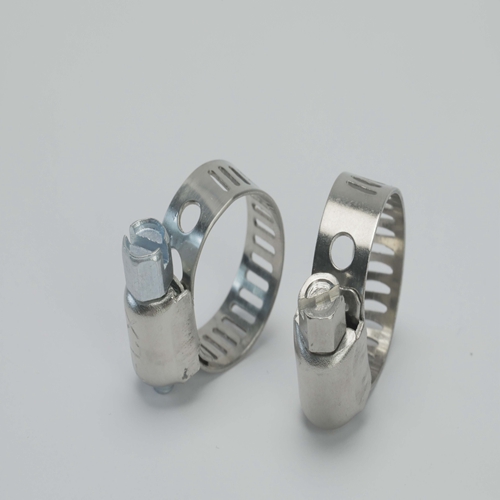- Phone:+86-17331948172 +86-0319-8862898
- E-mail: inquiry@puxingclamp.com
Dec . 18, 2024 11:50 Back to list
Top Suppliers of Marine Grade Stainless Steel Hose Clamps for Your Needs
Understanding Marine Grade Stainless Steel Hose Clamps and Their Suppliers
When it comes to marine applications, the choice of materials is crucial for ensuring durability and resistance to harsh environments. One of the most vital components often overlooked in marine setups is the hose clamp. Among the various types available, marine grade stainless steel hose clamps stand out for their exceptional performance in salty, humid conditions. In this article, we will explore the significance of these clamps and provide insights into finding reliable suppliers.
Why Choose Marine Grade Stainless Steel?
Marine grade stainless steel refers to alloys primarily composed of chromium, nickel, and molybdenum, which greatly enhance their resistance to corrosion. Specifically, grades such as 316 and 317 are often used in marine applications because they can withstand the aggressive effects of saltwater and other corrosive environments. Using inferior materials can lead to premature failure, resulting in potential damage to equipment and increased maintenance costs.
The benefits of using marine grade stainless steel hose clamps include
1. Corrosion Resistance These clamps resist pitting and rust, ensuring longevity even in moisture-rich environments. 2. Strength and Durability Marine grade stainless steel provides high tensile strength, making it ideal for securing hoses under various conditions and pressures. 3. Versatility Suitable for various applications, from boat engines to fuel systems, these clamps can handle both high and low-pressure environments.
Features of High-Quality Marine Grade Hose Clamps
When searching for marine grade stainless steel hose clamps, certain features should be prioritized to ensure quality and reliability
- Material Composition The clamp should be constructed from high-quality 316 stainless steel for optimal corrosion resistance. - Design and Functionality Look for clamps that offer a smooth inner surface to prevent damage to the hose while tightening. - Adjustment Mechanism A reliable and easy-to-use adjustment system is essential to fasten the clamp securely. - Finish A polished finish not only improves aesthetics but also enhances corrosion resistance by minimizing surface imperfections.
Finding Reliable Suppliers
marine grade stainless steel hose clamps suppliers

With the knowledge of what to look for in marine grade stainless steel hose clamps, the next step is to find reputable suppliers. Here are some tips to help you in your search
1. Research Online Start by searching for specialized suppliers of marine hardware. Websites and online marketplaces often have customer reviews and ratings that can guide your decision.
2. Industry Recommendations Consult with professionals or fellow boat enthusiasts who have experience with marine equipment suppliers. They can provide valuable insights based on their experiences.
3. Quality Certifications Check if suppliers have relevant quality certifications, such as ISO standards, which guarantee their products meet certain quality benchmarks.
4. Product Range A good supplier should offer a wide variety of hose clamps and other marine hardware. This shows their commitment to meeting diverse customer needs.
5. Customer Support Reliable suppliers provide excellent customer support, assisting customers with queries, returns, and installation advice. Good after-sales service is often indicative of a supplier's reputation.
6. Sample Testing If possible, request samples of the clamps for testing. This will allow you to assess quality firsthand before making a bulk purchase.
Conclusion
Investing in marine grade stainless steel hose clamps is vital for ensuring the longevity and safety of marine systems. By understanding their features and the benefits of using high-quality materials, you can make informed decisions when selecting hose clamps for your applications. Furthermore, knowing how to find reliable suppliers can lead to better product availability and pricing. Remember, the right hose clamp is more than just a simple accessory; it is a critical component that plays a significant role in the reliability and efficiency of marine operations. With a little research and due diligence, you can secure the best products for your marine needs.
-
Premium 201 Stainless Steel Strip - Durable & Cost-Effective
NewsAug.23,2025
-
Precision High Quality Stainless Steel Strip Coils & Rolls
NewsAug.22,2025
-
Durable Adjustable Hose Clamps for Pipes & Radiators
NewsAug.21,2025
-
Heavy Duty Hose Clamps: Premium Stainless Steel & Adjustable
NewsAug.19,2025
-
Large Stainless Steel Adjustable American Type Hose Clamp - Hebei Pux Alloy Technology Co., Ltd
NewsAug.18,2025
-
Large Stainless Steel Adjustable Hose Clamp - Hebei Pux Alloy|Durable Corrosion Resistance&Adjustable Design
NewsAug.18,2025




